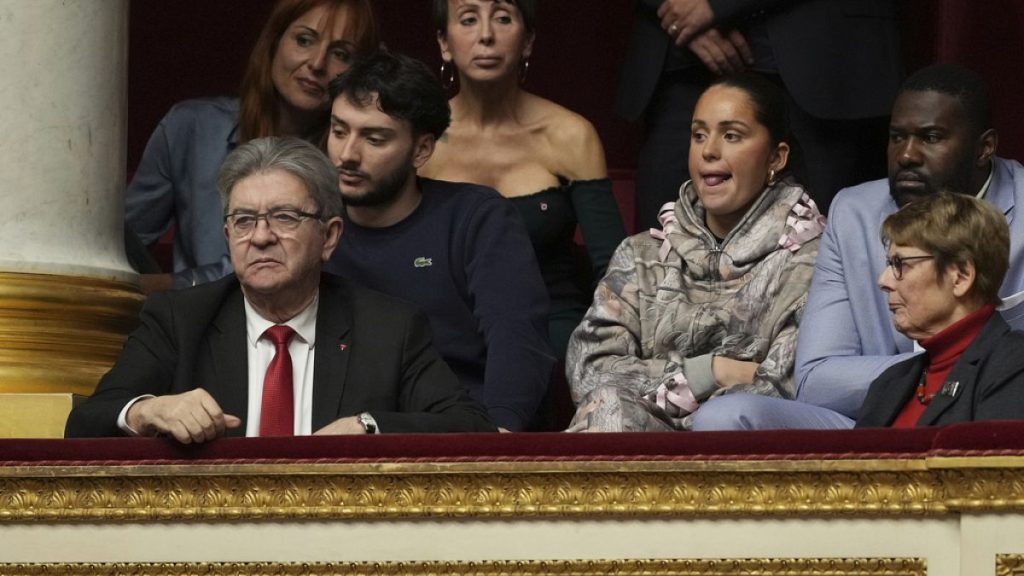The French political landscape is in a state of flux following a successful no-confidence vote against Michel Barnier’s government, prompting President Emmanuel Macron to initiate a series of consultations with various political parties to forge a new governing coalition. This unexpected turn of events has created a complex and delicate situation, with parties across the political spectrum maneuvering for influence and advantage in the formation of the next government. The ensuing negotiations and alliances will significantly impact the direction of French policy and the stability of the government in the months to come. Macron’s challenge lies in navigating these competing interests to create a viable and effective government capable of addressing the nation’s pressing issues.
The Socialist Party, a key component of the left-wing New Popular Front (NFP) coalition, has emerged as a pivotal player in the ongoing discussions. Their willingness to engage with Macron independently of their coalition partners has sparked controversy and raised concerns about potential fractures within the left. Olivier Faure, the Secretary General of the Socialist Party, has defended their decision, emphasizing the need to break the current political deadlock and explore all avenues to form a functional government. He has stressed that the Socialists are not willing to compromise their core principles and will only participate in a government led by a left-wing Prime Minister. This stance, however, has drawn criticism from other members of the NFP, who accuse the Socialists of undermining the unity of the left and potentially paving the way for a right-leaning government.
The most vocal critic of the Socialist Party’s approach has been Jean-Luc Mélenchon, the leader of the hard-left France Unbowed party (LFI). Mélenchon has publicly denounced the Socialists for meeting with Macron without the consent of the other NFP parties, accusing them of acting unilaterally and potentially betraying the interests of the left. This internal conflict within the left-wing coalition further complicates the already challenging task of forming a new government, highlighting the deep divisions and differing strategic approaches within the broader left. The rift between the Socialists and France Unbowed underscores the difficulty of maintaining a united front in the face of political upheaval and the temptation to prioritize individual party interests over coalition solidarity.
Macron’s consultations extend beyond the left, encompassing meetings with representatives from the right-wing conservative parties. This inclusive approach, while potentially broadening the base of support for a new government, also risks alienating those on the extremes of the political spectrum. Notably absent from the invitation list were representatives from the far-right National Rally and the hard-left France Unbowed. This exclusion reflects Macron’s strategic decision to focus on building a coalition with parties closer to the center, but it also carries the risk of further polarizing the political landscape and exacerbating existing tensions.
The President’s decision to exclude the far-right and hard-left from the initial round of consultations reflects a calculated political strategy. By focusing on parties with more moderate stances, Macron aims to create a government with broader appeal and greater potential for stability. However, this approach also carries inherent risks. The excluded parties may feel marginalized and further entrenched in their opposition, potentially hindering the government’s ability to implement its agenda. Balancing the need for inclusivity with the desire for a cohesive and effective government is a delicate balancing act with significant implications for the future of French politics.
The unfolding political drama in France underscores the challenges of coalition building in a fragmented political landscape. Macron’s task is not simply to find a Prime Minister and form a government, but to construct a coalition capable of navigating the complex and often conflicting interests of its constituent parties. The success of this endeavor will depend on his ability to forge compromises, build trust, and create a sense of shared purpose among disparate political actors. The coming days and weeks will be crucial in determining the shape and direction of the new French government and the long-term stability of the nation’s political system.

